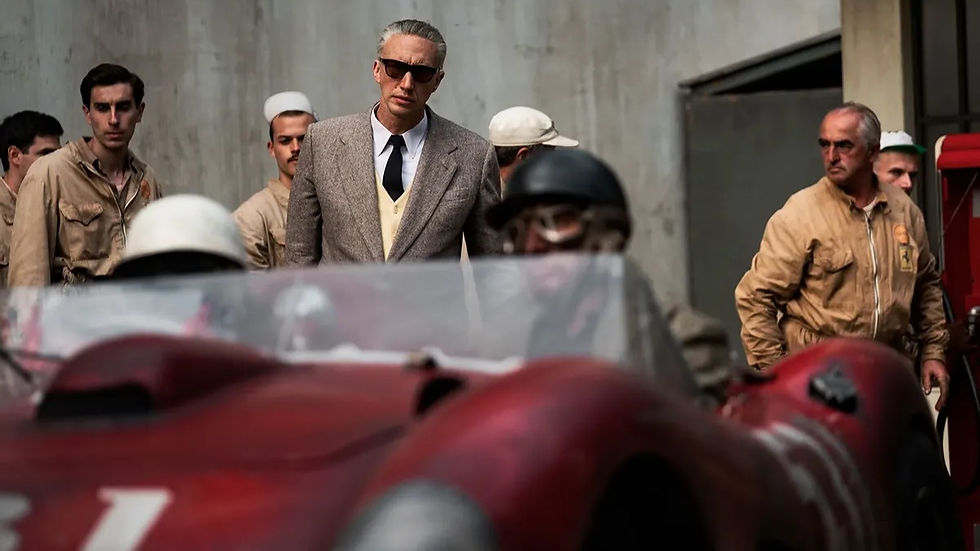Ferrari
- Gus Keller
- Dec 28, 2023
- 1 min read

Ferrari is layered, motivated, and oddly distant. The story is focused, balancing plot, emotions, and themes. There are thoughts on competition, obsession, compensation, masculinity, and power. It provides family drama, dry humor, tragedy, and flawed characters. The acting varies from powerful (Cruz) to outmatched (Woodley) with Driver in between, offering intermittent intensity, outbursts, physicality, and internals, but dubious chemistry, contrast, range, and consistency. Meanwhile, the intimacy is cold. Each of the protagonist's layers feels underdeveloped and opaque. This creates a disconnect at Ferrari's heart, weighing it down to less than the sum of its parts.
Technically, Ferrari is visceral yet dry. Its direction establishes danger, energy, coordination, intention, and an impersonal tone. The active imagery uses focus, motion, angles, mounts, lighting, and depth. Its editing has slo-mo, dissolves, cross cuts, intercuts, inserts, flashbacks, action, and uneven pacing. The rich sound adds engines, ticking, smash cuts, muting, and quiet. Its music is heightened, operatic, trans-diegetic, restrained, and forgettable. The production design creates the era, location, and profession. Its cast has fame but arguable fit. The effects offer adequate green screens, age makeup, stunts, CGI, and violence. Overall, Ferrari is more crafted than relatable.
Writing: 7/10
Direction: 8/10
Cinematography: 8/10
Acting: 8/10
Editing: 8/10
Sound: 9/10
Score/Soundtrack: 7/10
Production Design: 8/10
Casting: 7/10
Effects: 7/10
Overall Score: 7.7/10




Comments